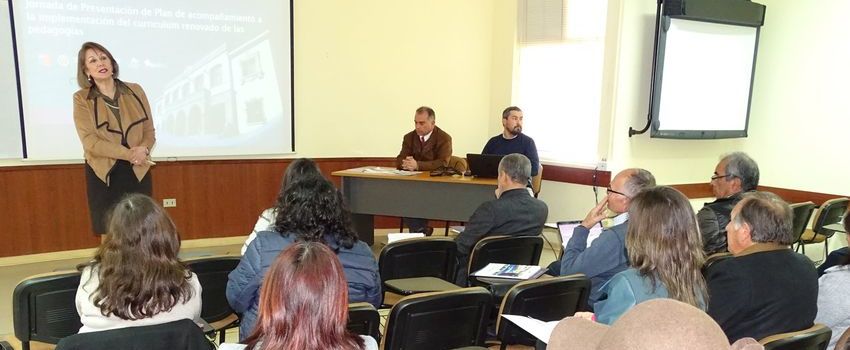
The presentation was made in the presence of institutional authorities, directors of departments and schools, coordinators of ULS pedagogy courses, and support teachers in the process of improving initial teacher training.
Four years have passed since the process of curricular renewal of the pedagogy courses of the University of La Serena began, an action that was managed by the Integrated Management Unit of Pedagogies (UGIP) with the support of key actors of the institution. and the school system, and which was launched during 2019.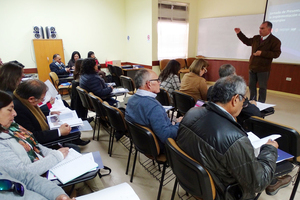
In this context, the UGIP presented the support plan that is being carried out for the implementation of said renewed curriculum, which is composed of three phases in which the various teams currently working in the pedagogy careers must be integrated.
“The task is related to assuming shared responsibility and commitment related to a special job, in that we have careers that are renewed and the new curriculum is already being implemented. The idea is not to do more of the same, but on the contrary, to be able to visualize the substantial changes that we are making in the pedagogies,” said the Academic Vice-Rector, Dr. Alejandra Torrejón.
In that sense, the process initially contemplated a first phase in which a baseline was defined referring to the current conditions that the careers currently present to face the renewal; After this, a phase of accompaniment and monitoring of the implementation is planned; and finally an evaluation phase, in which they will focus on their planning and coherence with respect to the learning outcomes proposed in each subject.
The participants, directors of schools and departments, coordinators of pedagogy courses and support teachers, were able to share their experiences and provide suggestions according to the context of each course, which will be of great support for the implementation of the support plan.
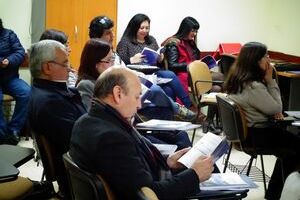 “These processes will allow us to ensure the quality that we propose in the renewal, which is part of the commitment we have with students and society, since we are training future teachers who will later enter a global world. Therefore, the UGIP has the role of supporting each degree program and accompanying them in the implementation, execution and evaluation of the renewed curriculum,” explained researcher Dr. Rodrigo Ruay, who participates with the UGIP team in the development of the plan.
“These processes will allow us to ensure the quality that we propose in the renewal, which is part of the commitment we have with students and society, since we are training future teachers who will later enter a global world. Therefore, the UGIP has the role of supporting each degree program and accompanying them in the implementation, execution and evaluation of the renewed curriculum,” explained researcher Dr. Rodrigo Ruay, who participates with the UGIP team in the development of the plan.
Launch of the first UGIP Didactic Notebook
With the purpose of providing a tool that supports the implementation of the renewed curriculum, the UGIP promoted the creation of a collection of teaching notebooks for the initial training of teachers.
The first is titled “Evaluation of learning outcomes in a renewed curriculum” and provides various conceptual and methodological tools that teachers can use in the field of learning evaluation.
“One of the things that we have faced as teachers is that, just as we plan our teaching, evaluation is a tool that has to be planned and not improvised. Nowadays, evaluation for learning is a strategic issue for the student to take co-responsibility with their own learning process, this is what underlies the renewal of the career curriculum. It is a cultural change that we have to begin to install in the evaluation processes,” explained Dr. Ruay.
The next notebooks will be related to ICT, practices and the contribution of neurosciences in the learning-teaching process of initial teacher training, which will be distributed in all careers in the area of pedagogies.
Written by Daniela Ledezma, UGIP
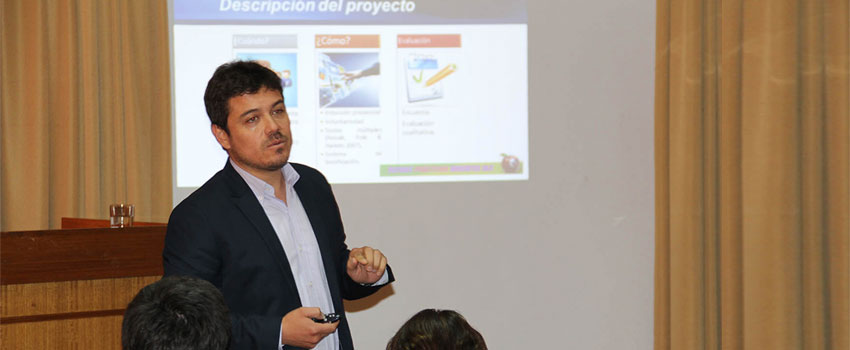

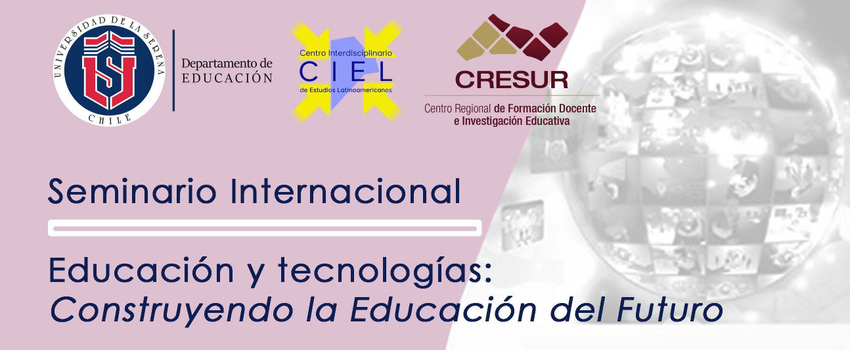
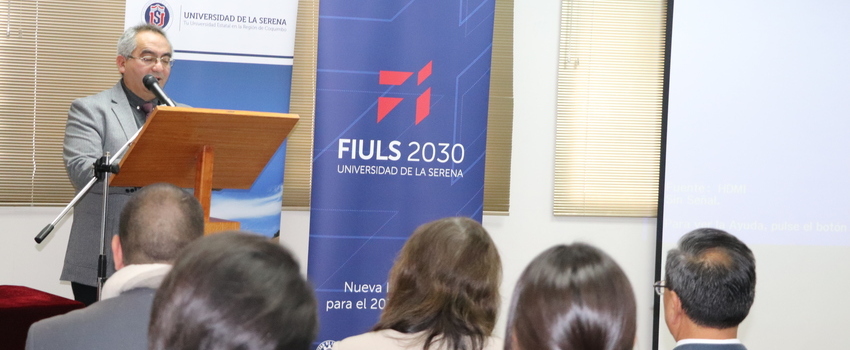
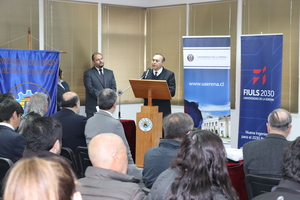
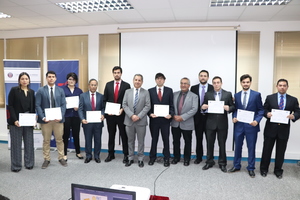
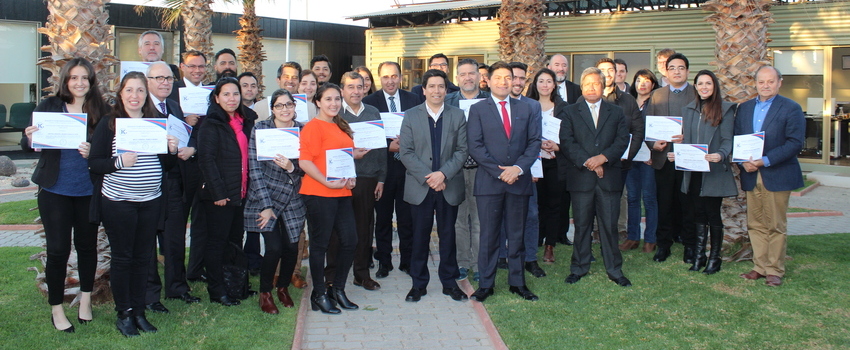
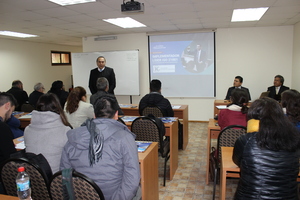
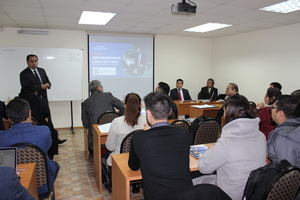
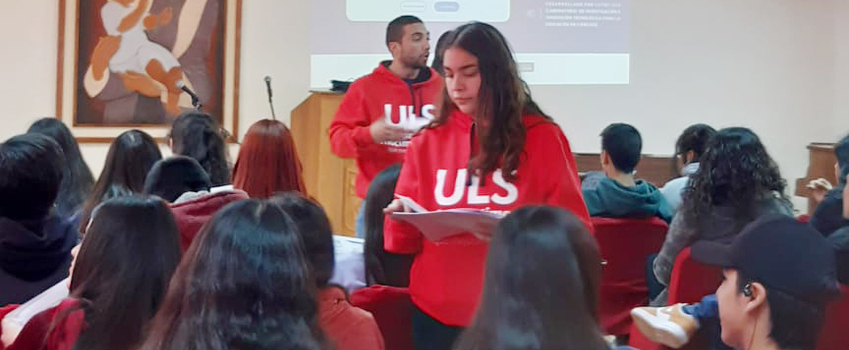


 “These processes will allow us to ensure the quality that we propose in the renewal, which is part of the commitment we have with students and society, since we are training future teachers who will later enter a global world. Therefore, the UGIP has the role of supporting each degree program and accompanying them in the implementation, execution and evaluation of the renewed curriculum,” explained researcher Dr. Rodrigo Ruay, who participates with the UGIP team in the development of the plan.
“These processes will allow us to ensure the quality that we propose in the renewal, which is part of the commitment we have with students and society, since we are training future teachers who will later enter a global world. Therefore, the UGIP has the role of supporting each degree program and accompanying them in the implementation, execution and evaluation of the renewed curriculum,” explained researcher Dr. Rodrigo Ruay, who participates with the UGIP team in the development of the plan.